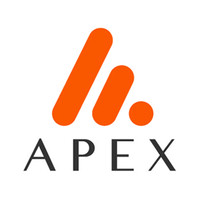In other news, Apex Group taps Bloomberg, Broadridge and EquiLend build a bridge & LSEG and Finmechanics launch ‘CTR.’
Acadia Solution Compares ISDA SIMM Versions
 Acadia, a maker of risk mitigation services for derivatives trading, has launched a web-based offering, dubbed IM Recalibration Analytics (IMRA), that is intended to help firms assess the impact of the new ISDA Standard Initial Margin Model (ISDA SIMM), a methodology that helps securities firms calculate initial margin for non-centrally cleared derivatives.
Acadia, a maker of risk mitigation services for derivatives trading, has launched a web-based offering, dubbed IM Recalibration Analytics (IMRA), that is intended to help firms assess the impact of the new ISDA Standard Initial Margin Model (ISDA SIMM), a methodology that helps securities firms calculate initial margin for non-centrally cleared derivatives.
“IMRA leverages existing services provided by Acadia for firms in-scope for Uncleared Margin Rules. By incorporating existing data from IM Exposure Manager and IM Threshold Monitor, IMRA gives users the added benefit of a complete, consistent view of their initial margin requirements without the need to upload new data,” according to the official announcement.
The web-based IMRA helps firms automate “tasks that are currently executed manually, such as viewing counterparty and netting set level exposure changes and daily trend analysis to track potential changes in IM differences,” officials say. “The analytics tool also provides firms with greater visibility when comparing a variety of data points, such as aggregate exposure and counterparty- and agreement-level exposure.”
The off-cycle recalibration was introduced “to ensure that major market shocks that drive a significant change in risk can be factored into the ISDA SIMM model on a quarterly basis in addition to an annual basis,” officials say.
The introduction of potential quarterly off-cycle recalibrations makes having the capability to predict the impact of initial margin exposure calculation changes more important than ever, officials add.
Apex Group Taps Bloomberg for Market Data Support
 Fund administrator Apex Group will be using Bloomberg’s reference, pricing, and corporate actions data for global operations to support equities and fixed income, officials say.
Fund administrator Apex Group will be using Bloomberg’s reference, pricing, and corporate actions data for global operations to support equities and fixed income, officials say.
“With this solution, Apex Group will be able to use Bloomberg’s data sets predominantly for its fund administration business, which manages fund and portfolio accounting for various global funds,” officials say.
“Apex Group has also recently made several strategic acquisitions, and the firm-wide consolidation to using primarily Bloomberg’s data sets will ensure that the entire group will have access to the same data going forward. The implementation has been carried out by Apex Group’s Global Operations and Technology team based out of India,” officials add.
The Bloomberg data will be “integrated into Apex Group’s existing workflows and systems. The data sets enable independent calculation of net asset values (NAVs) of a fund’s portfolio, which is a key regulatory requirement in most markets. They also simplify and support pre-trade compliance with local regulations, as well as portfolio and counterparty risk monitoring,” officials add.
Apex Group also reports that it will be using Bloomberg’s BFIX “for multi-currency portfolio reporting. BFIX is a robust, regulated benchmark covering a wide array of FX instruments that offers a comprehensive coverage of global currencies,” officials add.
Apex Group Ltd., established in Bermuda in 2003, has more than 94 offices worldwide and 12,000+ employees in 38 countries, and serves asset managers, financial institutions, private clients and family offices. The firm offers fund services, digital onboarding and bank accounts, depositary, custody, super ManCo and fund raising services, corporate services including HR and payroll and an ESG Ratings and Advisory solution.
Broadridge & EquiLend Build Bridge to Central Clearing
 Post-trade system and services provider Broadridge Financial Solutions is working with securities finance technology vendor EquiLend via an agreement to facilitate straight through processing (STP) to the National Securities Clearance Corp.’s (NSCC) central counterparty (CCP) for equity securities finance transactions.
Post-trade system and services provider Broadridge Financial Solutions is working with securities finance technology vendor EquiLend via an agreement to facilitate straight through processing (STP) to the National Securities Clearance Corp.’s (NSCC) central counterparty (CCP) for equity securities finance transactions.
“Market participants utilizing EquiLend 1Source, the DLT-based single source of truth for securities finance transaction lifecycle information, will be able to direct securities lending trades seamlessly to the NSCC for central clearing via Broadridge’s Trade Submitter Service,” officials say.
“We are delighted to be able to offer our joint clients straight-through processing to central clearing via our SFT Submission Service platform,” says Darren Crowther, head of securities finance services for Broadridge, in a prepared statement.
Broadridge’s SFT Submission Service meets “the NSCC requirements to match and submit via an Approved Trade Submitter,” officials add.
“The new offering will utilize EquiLend’s liquidity sourcing options and allow clients to trade and automatically submit via Broadridge SFT Submission Service without a large change in operational processes while benefitting from the capital cost and risk reduction benefits of central clearing,” officials say.
LSEG & Finmechanics Launch ‘CTR’ Application
 LSEG is working with Finmechanics, the Singapore-based provider of FM Converge, “to help corporate treasuries reduce their liquidity and market risks, as well as their reliance on bulky, inefficient, spreadsheet-based processes,” officials say.
LSEG is working with Finmechanics, the Singapore-based provider of FM Converge, “to help corporate treasuries reduce their liquidity and market risks, as well as their reliance on bulky, inefficient, spreadsheet-based processes,” officials say.
The collaboration has yielded the Corporate Treasury Risk (CTR) application, which “enriches the LSEG Eikon and Workspace platforms with post-trade analytics such as cash and liquidity forecasts, profit/loss and risk reporting, OTC derivatives valuations, as well as hedge effectiveness, ISDA margining and credit value adjustment (CVA),” according to the announcement. “A cloud-based managed service, CTR relies on micro-services and technology developed by Finmechanics.”
The launch of CTR helps corporate treasuries “benefit from unrivalled real and near-time pricing and market data coverage along with Finmechanics’ exacting standards of data integrity and valuation accuracy across all asset classes and derivatives,” says Andrew Hollins, director of FX and Corporate Treasury Desktop at LSEG, in a statement.
“Today’s corporate treasury teams face an unprecedented array of challenges, from the impacts of global geo-political turmoil including rising inflation, interest rate and FX market volatility. It’s therefore no wonder that we’re seeing the impacts of spreadsheet fatigue where continuous, manual input processes are leaving companies exposed to significant risk for business-critical tasks,” Hollins adds.
Need a Reprint?